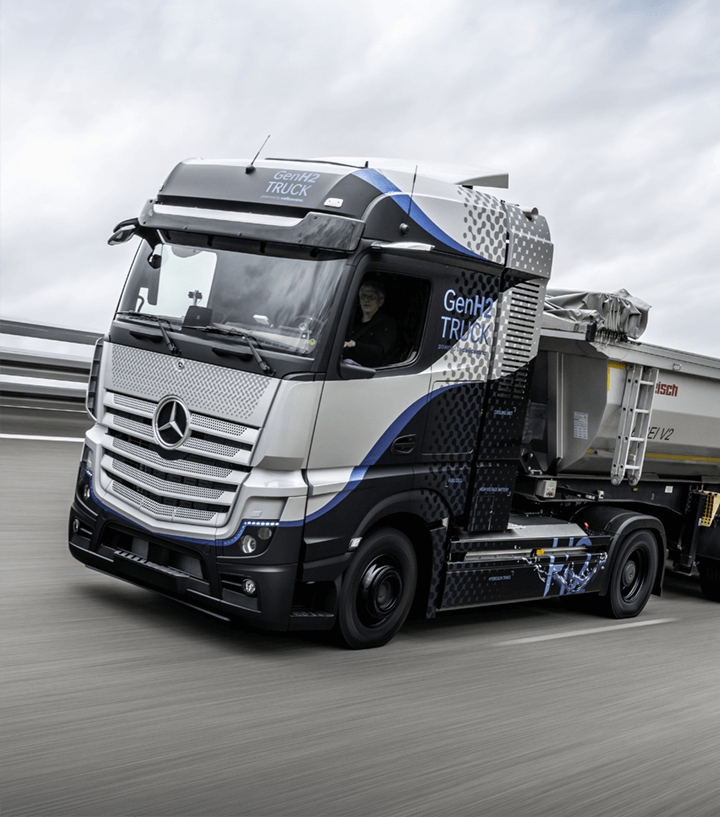
Collaboration calls for stronger UK policy framework to support hydrogen trucks
London, 12 December 2023, (Oilandgaspress): – The H2Accelerate collaboration has today published the latest in a series of whitepapers on the need for supportive policy frameworks to enable the commercialisation of the hydrogen truck sector. This whitepaper focusses on the UK landscape, examining the existing UK policy framework for zero-emission trucks and proposing policy changes that would enable the roll-out of a large-scale hydrogen trucking sector.
Exploring the existing UK policy framework
The UK was among the first countries to develop a hydrogen strategy and has historically acted as a world leader in the implementation of policy support for low-carbon transport. The recent publication of the UK Zero-Emission Road Freight Demonstrator (ZERFD) shows that the UK government is willing to support the early-stage deployment of zero emissions trucks, however, longer-term support will be needed to provide vehicle OEMs with the certainty to invest in right-hand drive vehicles and fuel suppliers with the confidence to develop a nation-wide network of hydrogen refuelling stations.
Oliver Bishop, Global Head of Hydrogen Mobility at bp, said: “At bp, we are excited by the opportunity to invest in zero-emissions refuelling for heavy-duty vehicles in the UK. We are exploring opportunities to kick-start a UK hydrogen mobility offer to our truck customers. However, to make further investments that will enable the large-scale deployment of heavy-duty hydrogen vehicles across the UK, we need sustained supporting policies from the UK government.”
Policy recommendations outlined for the UK government
The policy paper outlines a series of policy recommendations which H2Accelerate members believe will foster confidence in the UK’s commitment to hydrogen trucking, and enable the ambitious targets to ban all non-zero-emission heavy duty vehicles by 2040.

The key recommendations are:
- Set out a minimum level of alternative refuelling network coverage, with large-scale hydrogen refuelling stations located every 200km on major networks by 2030, and a more comprehensive network required by 2035 comprising 250 refuelling stations with a total capacity of 500 tonnes of hydrogen per day.
- Strengthen and broaden the scope of the plug-in truck grant to allow all available zero-emission HGVs to be assessed, and cover 80% of the difference in cost between diesel and hydrogen fuelled trucks for the first 1000 trucks.
- Adapt the UK standards for renewable hydrogen so that hydrogen production plants can be connected to existing renewable electricity plants, provided they enter operation within 36 months.
- Review the Hydrogen Production Business Model’s Agreement to allow the participation of third party companies, so that hydrogen production projects do not need to develop the entire downstream supply chain.
- Create exemptions for zero-emission trucks from levies, tolls, and taxes while the sector scales up.
The above measures, implemented together, would allow H2Accelerate members as well as other hydrogen truck manufacturers and hydrogen refuelling players to invest with confidence in a zero emission long haul truck sector in the UK.
Hannah Bryson-Jones, spokesperson for the H2Accelerate collaboration, said: “The UK government has the opportunity to unlock large-scale investment in long haul zero emissions freight. Ambitious targets have been set regarding the complete ban on diesel trucks, but these can only be achieved if the sector is supported in scale-up starting today. Aligned and progressively larger deployments of low carbon hydrogen production, refuelling, and trucks, will secure a smooth transition to zero emission heavy-duty vehicles.”
Information Source: Read full article
Energy ,Petrol , Electric Power , Natural Gas , Oil , Climate , Renewable , Wind , EV , LPG , Solar , Electric , Electric Vehicles, Hydrogen, Oil Price ,Crude Oil, Supply, Biomass , Sustainability,

